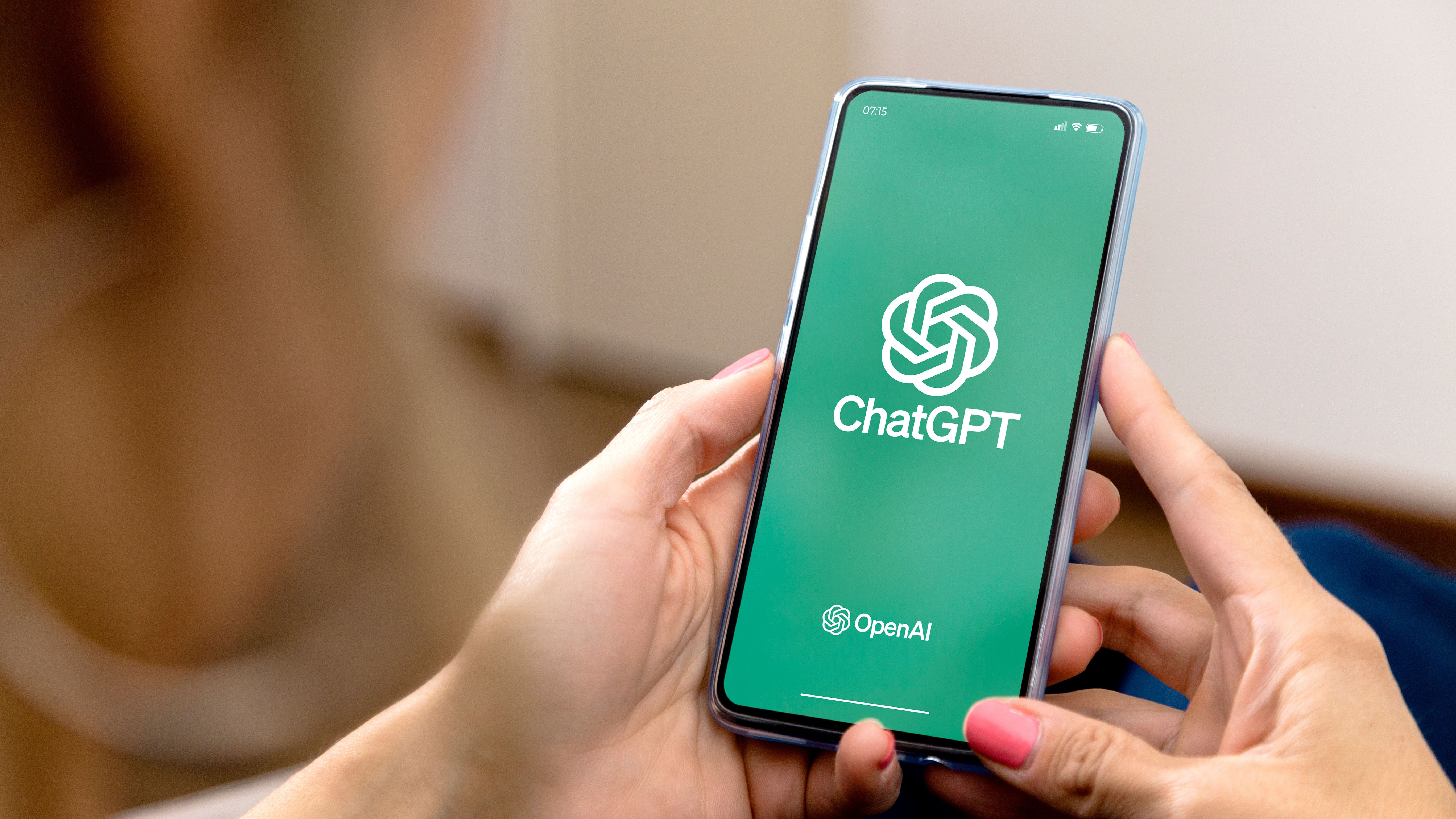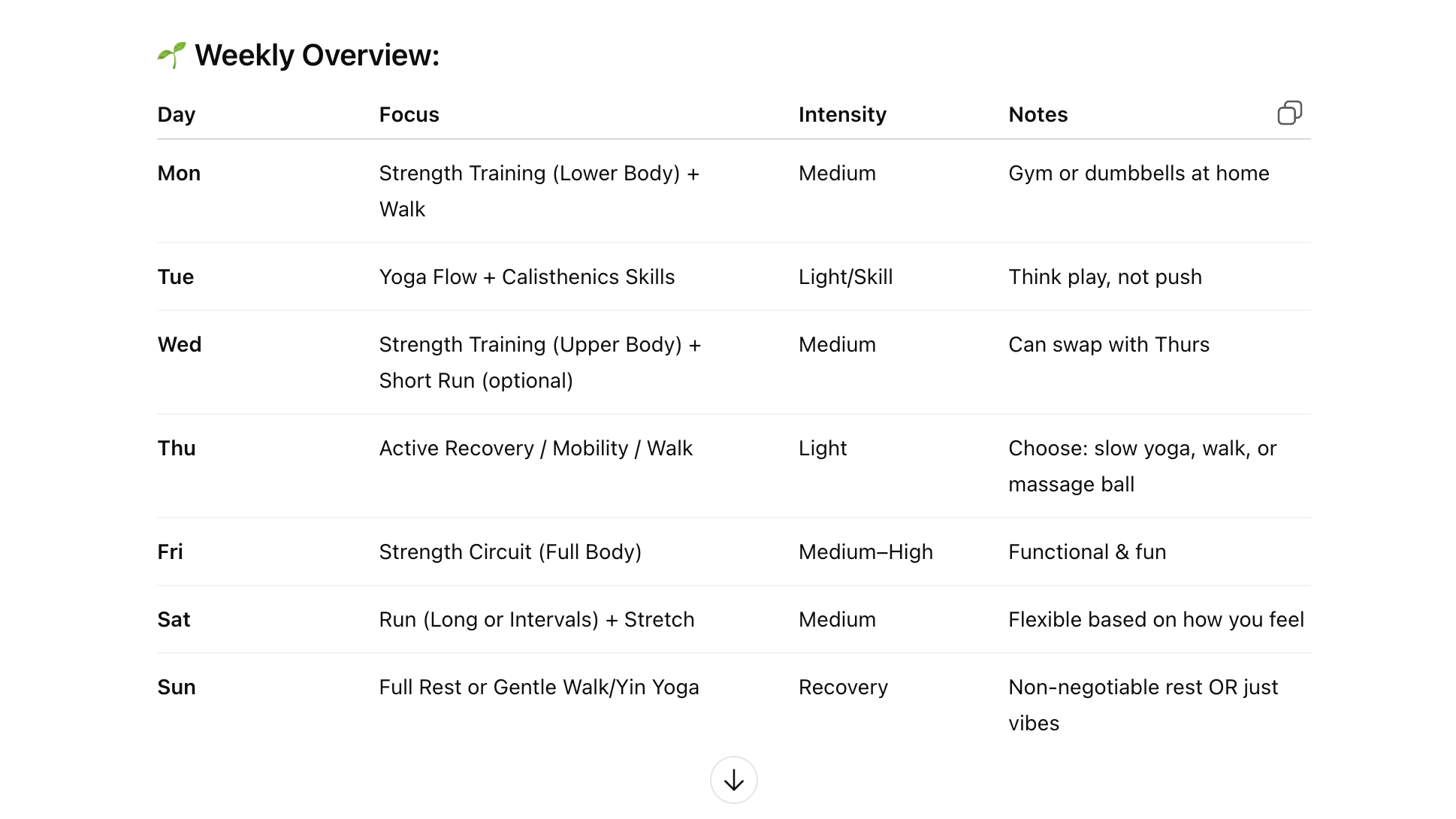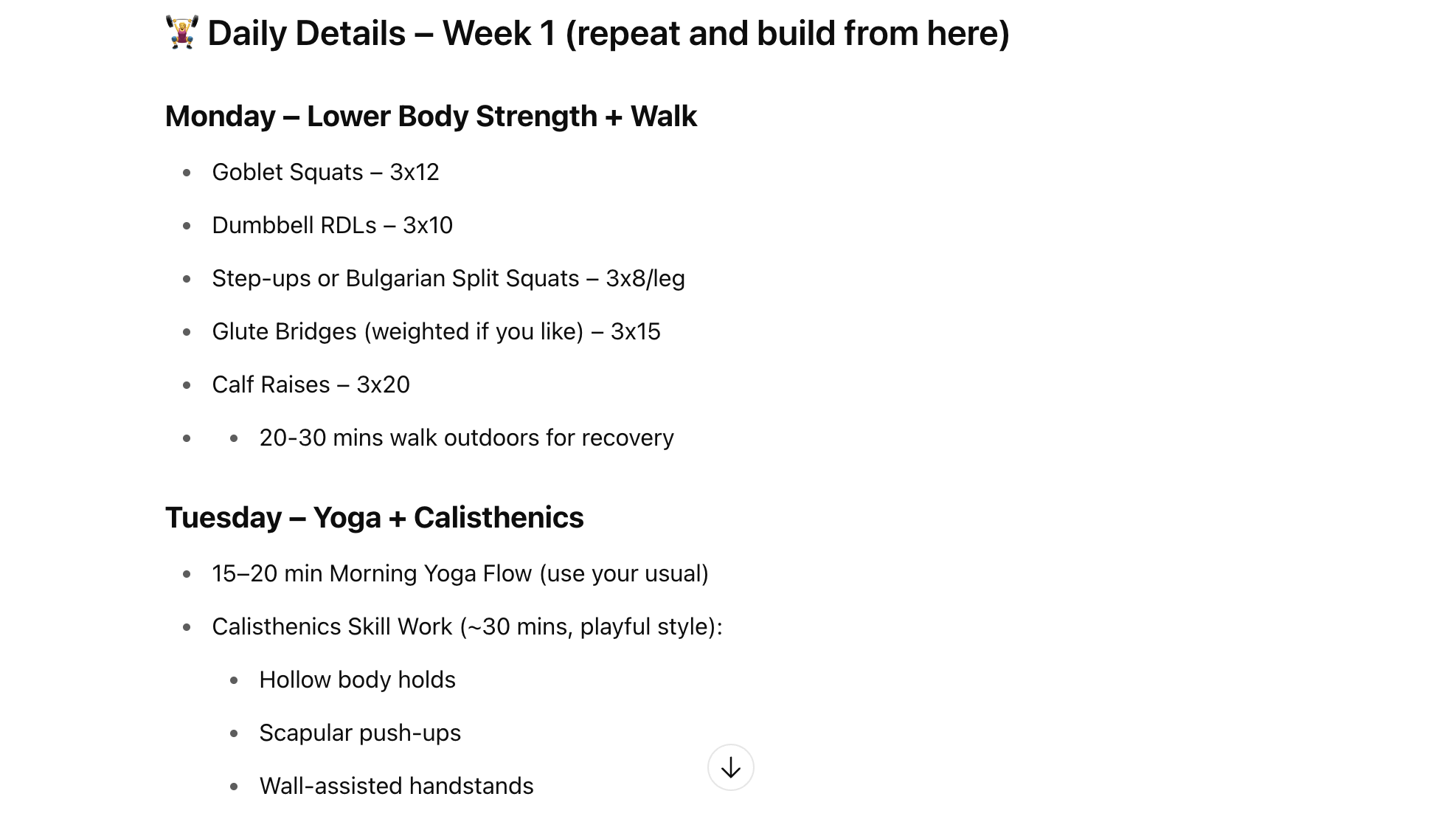This ChatGPT prompt will help you build a simple workout plan you may actually stick to
How to turn ChatGPT into your virtual PT

Fitness can feel overwhelming. Open TikTok or Instagram and you’re immediately flooded with workouts, expert tips, fitness challenges and conflicting advice. Even if you’re already active, it’s easy to feel like you’re doing too much, too little or the wrong thing entirely.
That’s where ChatGPT can help. When you’re aware of its limitations, it can be a powerful tool for cutting through the noise and building a simple but personalized workout plan that aligns with your lifestyle. No, it won’t replace a qualified coach or offer the same level of nuance. But it can give you structure, direction and a starting point – and sometimes, that’s all you need.
Of course, its limitations do matter here. ChatGPT is a large language model, meaning it generates responses based on patterns in text, not through reasoning or expertise. It’s not “thinking” like a personal trainer would. But it is drawing on a vast amount of knowledge, which it can tailor to your inputs and preferences.
I’m really into fitness, and people often ask me how to get started. The prompt I’m about to share has helped them. But it’s also helped me. Even though I enjoy working out, I still get overwhelmed. I don’t always prioritize rest like I should and because I like training in lots of different ways, I sometimes lose track of what I’ve done and what my body needs next.
So let’s get into it. Below, I’ll share the prompt, how best to use it and how to refine the results to make ChatGPT your personal fitness planning assistant – without falling into the usual traps.
The prompt
The prompt below is useful for beginners, but also for anyone who feels stuck, unfocused or in need of a fitness reset. I’ve used it to refresh my own training plan and regain clarity when things feel scattered.
The key is to be honest about what holds you back – whether that’s boredom, lack of knowledge, low energy or simply not having much time. You’ll feed that into the prompt and ask ChatGPT to help you work around it. You’ll also encourage it to ask follow-up questions, which is where it gets much more useful.
Sign up for breaking news, reviews, opinion, top tech deals, and more.
Here’s the base prompt:
You are a certified personal trainer and behavior change expert. You’re helping me build a realistic, personalised workout routine I can stick to. Ask me the following questions first:
1) My age and gender
2) My fitness goals (e.g. build muscle, lose fat, get stronger, feel better)
3) My workout experience (beginner, intermediate, advanced)
4) How many days per week I can realistically train
5) Any equipment I have access to (home, gym, dumbbells, resistance bands, etc)
6) Any injuries or limitations
7) What kinds of workouts I like doing already
8) My current energy levels and mental state around fitness
Based on all of this information, give me a 4-week plan that fits my lifestyle. Keep it simple and sustainable. Include a weekly overview and then daily details. Also highlight habits I should focus on outside of workouts (like sleep, hydration, movement). Make it friendly, supportive, and not overwhelming.
Ensure rest and recovery are factored in. [Optional: here’s where you can add something you personally struggle with, or wait for the follow-up questions.]
Check in with me at the end of each week and ask how it went.
Making the most of ChatGPT's response
Once you paste the prompt into ChatGPT, you’ll need to answer the questions fully and honestly. Take your time with that step. It's always better to say more than less, in my experience.
From there, it should generate a personalized plan for the week ahead. Here’s what mine looked like:

What I like about this approach is how flexible it is. The initial plan was a solid starting point, but I found it especially helpful to then fine-tune it. For example, I asked for more recovery time and for clearer structure and more detailed breakdown of exactly what it recommended I do across the week – and ChatGPT adapted accordingly.
My main challenge was how to structure my training days in a way that felt balanced. I often skip rest and overload certain muscle groups without realizing it.
This prompt helped me spread things more evenly and clarified which exercises to include. I even asked for suggestions to make sure I was hitting all major muscles on lower body days.

If you’re just starting out, you may want to dig into the recommended exercises a little more and ask ChatGPT for information on form and how to do them safely. Better yet, take any terminology you’re not familiar with or exercises you don’t know and paste them into YouTube so you can see a fitness professional carry them out in real-time.
ChatGPT also gave suggestions for lifestyle habits beyond training – like hydration, active rest and sleep – which would have been handy if I was new to fitness but did feel a little generic otherwise.
A few final tips
This prompt works best when you give it as much relevant information as possible. The more detail you share – in the initial prompt and the follow-ups – the more useful the plan becomes.
It also helps to make it your own. You can mention specific goals (like training for a race), share your available time or even upload a photo of your home gym setup so ChatGPT can tailor the plan accordingly. Don't be afraid to adapt the prompt and keep elaborating until you feel like you can get started.
This isn’t a replacement for professional fitness coaching. And I bet some PTs would instantly see where they could improve upon ChatGPT's recommendations. But it is a smart, low-friction way to get organized and feel in control – especially when motivation is low or decision fatigue kicks in.
Whether you're a beginner, someone returning to fitness or just need a reset like I often do, this prompt can offer structure, accountability and momentum. You might adapt it. You might move away from it. But it’s a solid push in the right direction and I don't know about you, but sometimes that’s all I need to get going again.
You might also like

Becca is a contributor to TechRadar, a freelance journalist and author. She’s been writing about consumer tech and popular science for more than ten years, covering all kinds of topics, including why robots have eyes and whether we’ll experience the overview effect one day. She’s particularly interested in VR/AR, wearables, digital health, space tech and chatting to experts and academics about the future. She’s contributed to TechRadar, T3, Wired, New Scientist, The Guardian, Inverse and many more. Her first book, Screen Time, came out in January 2021 with Bonnier Books. She loves science-fiction, brutalist architecture, and spending too much time floating through space in virtual reality.
You must confirm your public display name before commenting
Please logout and then login again, you will then be prompted to enter your display name.